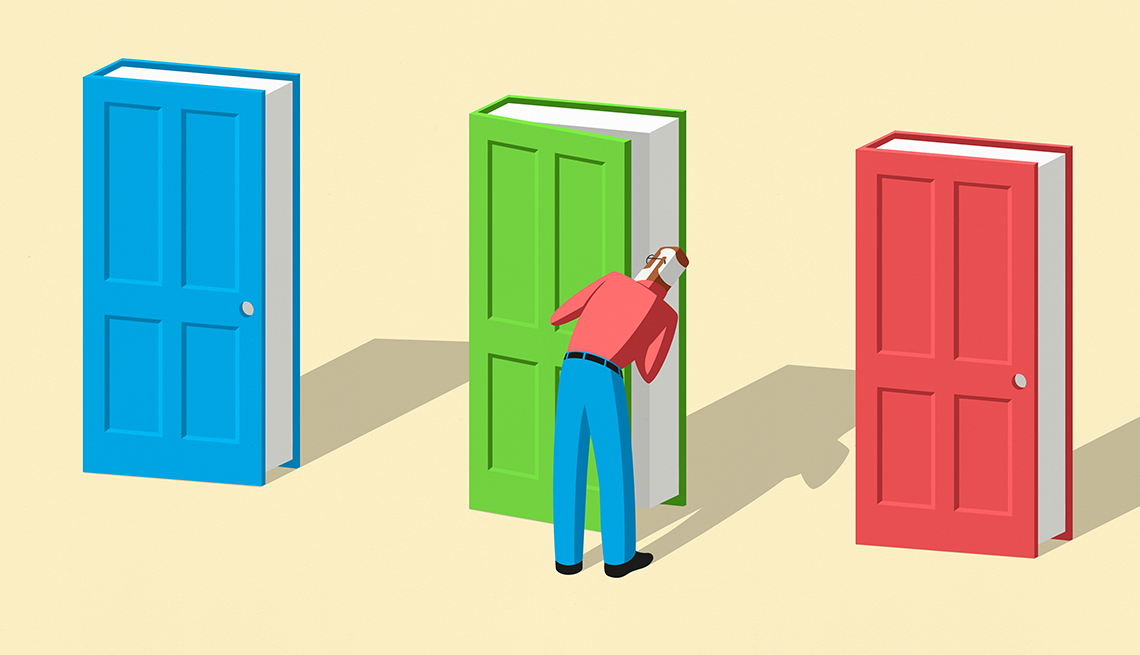AARP Hearing Center


If you’ve ever grappled with making a tough decision as an older adult, you’re not alone. Should you retire at 62 or wait? Is it more cost-effective to make payments on a new car or pay cash for a used model?
The good news: As we age, we’re able to use some of our life experiences and learned instincts to weigh the pros and cons, and we often focus more on the positive – even as our decision-making process might get slower.
So how can you make the best decisions as an older adult?
Don’t rush decisions — especially big ones
Since your brain’s processing speed begins to slow as you age, it can become difficult to make tough decisions under tight timelines, says Nichole Lighthall, PhD., associate psychology professor at the University of Central Florida’s Human Factors and Cognitive Program in Orlando, who studies the subject area. She recommends allowing time for important life decisions.
Of course in some emergency situations, you do the best you can, Lighthall says. But when you have more control over the timeline, she recommends taking time to consider the pros and cons.
With older people, “when emotions get activated, decisions are often made based on instinctive feelings,” she says. “Understand you may need a little bit more time, maybe a quiet space, to think and make your decision, or to write things out and engage with trusted experts.”
Do some research (and avoid getting scammed)
When you aren’t sure about something, take that extra time to gather information. Especially if someone presents you with an offer that sounds too good to be true, whether it’s a time-share or making an investment, question the source.
The difference between slower processing and dementia
Age-related changes in decision-making typically aren’t necessarily related to dementia, a condition marked by a decline in memory and other cognitive skills. But if someone is exhibiting memory loss combined with difficulty completing tasks and confusion about time and place, in addition to poor decision-making, then it’s a good idea to talk to your doctor.
“Consult people you trust, often friends or family or people you’ve worked with before — don’t necessarily trust someone who’s calling with an offer,” says Alan Castel, a professor in the department of Psychology at the University of California, Los Angeles (UCLA), and author of Better With Age: The Psychology of Successful Aging. “That’s good advice for anyone, but especially when you’re older, possibly vulnerable and have potentially more resources to lose.”
Lighthall says one of the highlights of her research is identifying predictors of vulnerability to scams and fraud. Her team is developing a screening tool to help health care providers identify older adults at a higher risk of getting scammed.
Don’t underestimate wisdom and life experience
“Many people think we should evaluate all the information that’s in front of us, but over a lifetime, you often get presented with similar types of experiences and realize you’ve been in a situation like that before, and this is how it should be handled,” says Lighthall.
Lighthall says these mental shortcuts, called heuristics, that are based on experience, reduce decision-making time and also save time and mental energy, giving “older adults an advantage over younger in some situations.”
For example, says Lighthall, when buying a car older adults don’t need to pore over every aspect of a car’s fact sheet. They know from past experiences and conversations with friends and family, about the most important features to evaluate.






























































More From AARP
25 Tips to Manage Your Stress
From scheduling stress and serenity to eating away the inflammation, here are ways to copeMake Life Easier with These 25 Practical Tips
Try these life hacks to save time and simplify your day
How to Make Tough Choices You Might Face at Work
Find answers to some thorny questions you could see on the job
Recommended for You